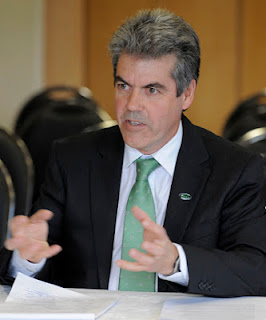Laila Harre Joins Greens

When the Rena disaster first hit the headlines I discovered an interesting parliamentary exchange between Laila Harre and Jenny Shipley regarding the planned deregulation of coastal shipping. Interestingly if you remove the references to shipping the two arguments actually sum up National's current approach to governance and the Green Party's concerns: Laila Harre: How can the Minister ... ( insert just about any current National initiative ) ...in the total absence of any objective analysis of the costs and benefits of the policy in terms of employment, local business development, and the environment; and is not her answer simply another case of substituting ideology and anecdote ( still National's approach ) for objective and independent analysis? Hon. Jenny Shipley: These matters were well traversed at the time that the legislation was passed through the House, and there was a great appeal from the cloth-cap brigade, who argued that no change could be entertained












